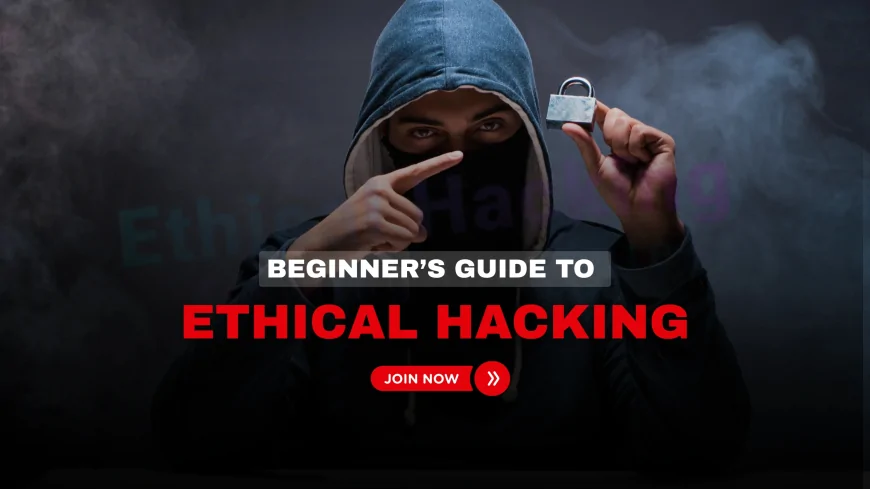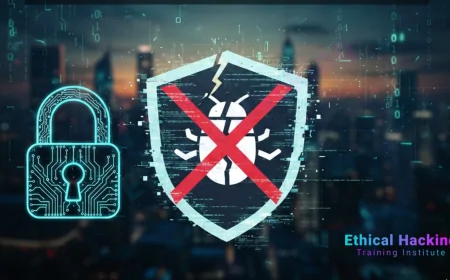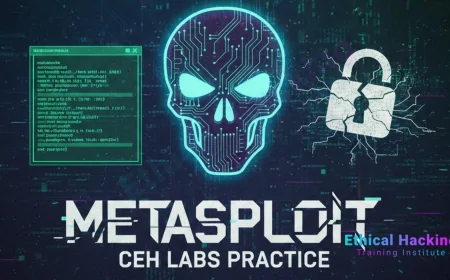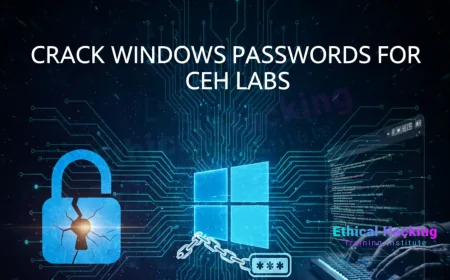Learn Hacking with These Comprehensive Online Courses | Start Your Hacking Journey: Full Online Course List for Begin
Discover the best comprehensive online hacking courses for beginners and experts. Learn ethical hacking, penetration testing, cybersecurity tools, and prepare for certifications like CEH and OSCP with hands-on labs and real-world projects.

Table of Contents
- Introduction
- Why Choose Online Hacking Courses?
- Types of Online Hacking Courses
- Top Platforms & Their Courses
- Skills & Tools You’ll Learn
- Suggested Learning Path
- Hands-On Labs & Projects
- Certification Pathways
- How to Choose the Right Course
- Pricing & Value Comparison
- Support & Community Access
- Freelancing & Bug Bounty Benefits
- Future‑Proofing Your Learning
- Frequently Asked Questions
- Conclusion
Introduction
Online hacking courses have revolutionized the way aspiring cybersecurity professionals learn. From foundational concepts to advanced penetration testing, these digital programs offer flexibility, real-world labs, and recognized certifications—making hacking education accessible to anyone with passion and determination.
Why Choose Online Hacking Courses?
Online courses eliminate geographical and scheduling constraints while providing structured content, interactive labs, mentorship options, and peer networking. Many include downloadable resources, lifetime access, and mobile compatibility—allowing you to build strong hacking skills at your own pace.
Types of Online Hacking Courses
- Beginner-Friendly: Intro to cybersecurity, basic Linux commands, and networking.
- Intermediate: Web app pentesting, Wi-Fi hacking, vulnerability scanning.
- Advanced: Exploit development, reverse engineering, CTF prep.
- Certification Prep: CEH, OSCP, CompTIA Pentest+ bootcamps.
- Specialized: Cloud security, IoT hacking, red team operations.
Top Platforms & Their Courses
- CEH v13 Training Program – Official EC-Council Certified Ethical Hacker training with live sessions, lab access, and exam preparation.
- Cybersecurity Fundamentals Track – Covers networking basics, Linux essentials, and information security principles for beginners.
- Advanced Penetration Testing Course – Real-world exploit development, red teaming, and vulnerability assessment with practical labs.
- SOC Analyst Training – Prepares you for roles in Security Operations Centers with hands-on monitoring, SIEM tools, and incident response workflows.
- Bug Bounty & Web Application Security – Learn OWASP Top 10, Burp Suite, XSS, SQLi, and practical bug bounty skills to report real vulnerabilities.
- CHFI (Computer Hacking Forensic Investigator) – Teaches digital forensics, data recovery, and evidence handling in cybercrime investigations.
All programs at WebAsha Technologies – Pune offer in-class or online modes, weekend batches, placement assistance, and mentoring from experienced cybersecurity professionals.
Skills & Tools You’ll Learn
Key competencies taught include:
- Network scanning (Nmap/Masscan)
- Web testing (Burp Suite/SQLmap)
- Exploitation frameworks (Metasploit/Cobalt Strike)
- Password cracking (Hashcat/John the Ripper)
- Packet sniffing (Wireshark/tcpdump)
- Reverse engineering (Ghidra/IDA)
Suggested Learning Path
Begin with foundational courses (1–2 months), then progress to intermediate labs (2–3 months). Finally, take advanced modules and pentesting prep (3–4 months)—total ~6–9 months. Regular practice, CTFs, and community involvement accelerate your skills.
Hands-On Labs & Projects
Courses include practical challenges like web vulnerabilities, system exploitation, and CTF-style missions. Many offer virtual lab environments, progress tracking, and real-time feedback—making learning deeply immersive and results-driven.
Certification Pathways
Most online courses directly map to globally recognized credentials such as CEH, OSCP, eJPT, and Pentest+. Earn certificates while learning—and build credibility for jobs or freelancing.
How to Choose the Right Course
- Align course content with your goals (entry-level vs expert)
- Check lab depth, instructor credentials, and reviews
- Compare duration, flexibility, and cost
- Ensure access to mentorship and peer forums
- Look for certification and job placement support
Pricing & Value Comparison
WebAsha Technologies – ₹15,000–₹35,000 for instructor-led CEH, CHFI, and red team modules; includes live mentoring and certification prep.
Best Value Tip: Beginners can start with affordable platforms, then invest in advanced certs like OSCP or WebAsha CEH once confident. Look for discounts, bundles, or job placement support to maximize ROI.
Support & Community Access
Top platforms provide vibrant Discord, Slack, or forum-based communities—plus mentorship, Q&A sessions, live events, and networking opportunities for skill development and career growth.
Freelancing & Bug Bounty Benefits
Many learners leverage online training to start freelance pentesting or bug bounty. Validating course-derived skills with real bug submissions builds reputation, experience, and passive income streams.
Future‑Proofing Your Learning
Stay ahead by choosing courses that update regularly—cover cloud hacking, DevSecOps, AI threats, IoT security—and participate in live labs to adapt to emerging cyber attack techniques.
Frequently Asked Questions
1. Are online hacking courses effective?
Yes—interactive labs, guided learning, and immediate feedback make online hacking courses highly effective and convenient.
2. Can I learn hacking without prior IT knowledge?
Yes—beginner courses cover fundamentals so even novices can build a strong foundation.
3. How long does it take to complete advanced tracks?
Advanced pentesting programs typically require 3 to 6 months of consistent effort.
4. Do I need to buy special equipment?
No—most courses run entirely on virtual machines or cloud labs, no hardware needed.
5. What certificates can I earn?
CEH, OSCP, eJPT, Pentest+, and platform-specific badges are common outcomes.
6. What if I get stuck on labs?
Course forums, Discord servers, and peer groups help clarify issues and guide progress.
7. Are these courses legal?
Yes—they use controlled labs and offer ethical hacking training aligned with legal standards.
8. How much do courses cost?
Costs range from free trials to $1500 bootcamps—most learners pay $200–$800 for quality tracks.
9. Can online training lead to jobs?
Combined with certifications and portfolios, many learners land roles in cybersecurity firms or internal SOC teams.
10. What are CTFs?
Capture‑the‑flag challenges simulate hands-on hacking tasks and reinforce real skills.
11. What's the difference between Webasha and OffSec?
WebAsha offers training and certification prep, while OffSec provides rigorous hands-on labs like the OSCP exam.
12. What prerequisites are needed?
Basic IT and networking knowledge helps, but many entry-level courses teach these as part of the curriculum.
13. How do I practice outside courses?
Engage with platforms like TryHackMe, Hack The Box, and OverTheWire for ongoing practice.
14. Are there certification discounts?
Many platforms offer bundled certification vouchers or discounts during promotions.
15. Do courses offer job support?
Some advanced bootcamps include resume help, interview prep, and access to employer networks.
16. Can beginners start bug bounties?
Yes—start with beginner-friendly programs and low-hanging targets after gaining foundational skills.
17. Are lab environments safe?
Yes—labs are sandboxed and separate from your personal system or the internet.
18. What languages should I learn?
Python and Bash are recommended; JavaScript helps with web vulnerability testing.
19. Can I switch to cloud security?
Many courses include cloud modules, and you can specialize after mastering core hacking techniques.
20. How do I measure progress?
Track completed labs, CTF scores, badges, and certifications to measure your growth.
Conclusion
Online hacking courses deliver structured, flexible, and effective learning from beginner to advanced. With hands-on labs, certifications, and vibrant communities, these programs open doors to cybersecurity careers, freelance opportunities, and personal growth. Choose the right path, commit to practice, and begin your transformation from learner to ethical hacker.
What's Your Reaction?
 Like
0
Like
0
 Dislike
0
Dislike
0
 Love
0
Love
0
 Funny
0
Funny
0
 Angry
0
Angry
0
 Sad
0
Sad
0
 Wow
0
Wow
0
















